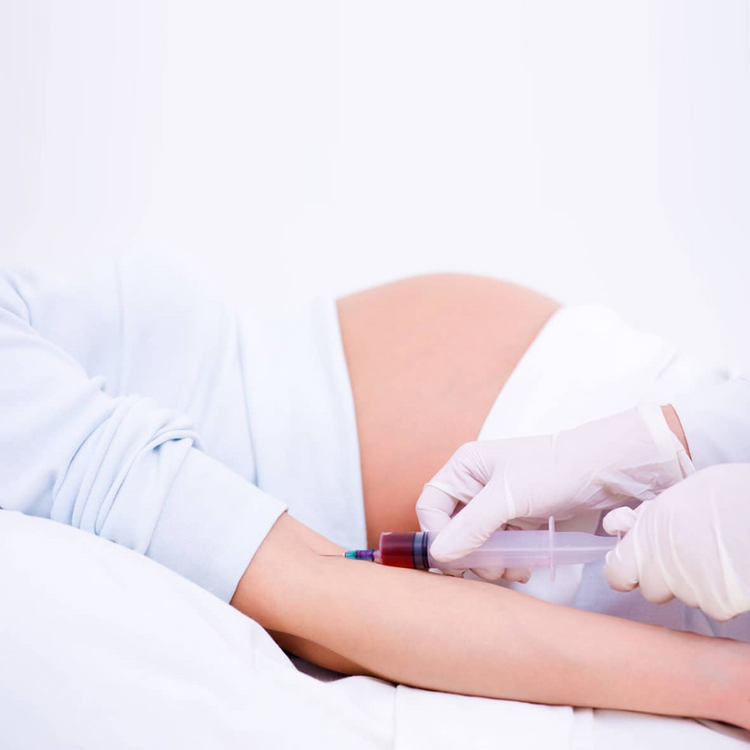Ovulation: The egg story in a nutshell!
Jun 24, 2016
19500 Views
“Dreams may be conceived as the ovulation of fate when they hold the possibility of becoming more than a concept or idea.” – Drew Platt
When your dream is a child, the whole concept of ovulation becomes more important than fate in today’s world.
Millions of babies are born every day, yet ask every mom how she conceived and ‘was it planned?’ – and everyone in that crowd will tell you a fascinating story. One filled with personal experiences and technical details, the drama and trauma – the surprise waiting at the end of a test, the stress, the joy, the anxiety and just every human emotion possible. One question that stuck in my mind was (if you are a novice in the field) – how does one go about ensuring healthy conception and plan it accordingly? A few conversations with successful and happy mommies, gynecologists, and some grandmas provided the finely curated list below.
What is first on your checklist when you are planning a pregnancy? The list is endless but a few really important pointers are –
- Follow a healthy diet – eat freshly cooked and prepared food
- Take folic acid for three months before conception
- Develop and maintain a consistent exercise routine
- Have all basic tests covered
- Consider genetic and family history
- Stop smoking, limit alcohol intake and any other social drugs
- Reduce or stop caffeine intake
- Review current medications; keep in constant touch with your gynecologist
What does the term ‘ovulation’ mean?
Ovulation is an integral part of the menstrual cycle, in which the mature ovarian follicle releases an egg. The process captures the passage of the egg down the fallopian tube, where it could potentially meet and be fertilized by the sperm.
The ovulation procedure is stringently regulated by the hypothalamus, which sends instructions to the anterior pituitary gland and lobe to secrete hormones such as luteinizing hormone (LH) and follicle-stimulating hormone (FSH). The process usually occurs between day 10 and day 19 of the menstrual cycle. Fertility is at its peak during this time – one should take note of that!
How can one calculate their ovulation date? Why is it relevant?
Menstrual cycles normally last between 28 and 32 days on average. Ovulation, generally occurs between the 10th day and the 19th day of the menstrual cycle, or 12 to 16 days before the next period is due. Ovulation is initiated once a mature egg is released from the ovary, and moves towards the fallopian tube, ready to be fertilized. The egg discharged can survive for 24 hours only!
The fertile window….
Wise practitioners state that ovulation occurs about halfway through a cycle, or 14 days post your period. By applying these norms, the relative ovulation date can differ greatly for every woman, and even for every cycle. The fertile window generally begins after a few days of the menstrual period, depending on the length and consistency of a woman’s cycle and other factors like stress or diet. It ends the day after ovulation, which for a perfectly regular 28-day cycle would end two weeks before the next period.
Peak fertility is a short “window” of opportunity – just a few days each month – when getting pregnant becomes possible. On ovulation, the ovum can stay alive for approximately 24 hours. The sperm, on the other hand, can actually survive for up to five days inside the womb and vagina. Given this, the ideal duration of the fertile window spreads out to six days approximately: five days before ovulation and 24 hours’ time frame post release of the ovum. However, one should note that fertile cervical fluids might not be secreted in every woman a few days before ovulation. Also, sperm could also be affected by issues like its lifespan and metabolism, pH levels of the vagina, quality and quantity of cervical mucus.
Statistically speaking, peak fertility comes down to two days before ovulation and the 24 hours after the egg is released. Therefore, if you can identify your 72-hour fertile window accurately and time your intercourse, your chances of getting pregnant are vastly improved!
Some resources to help track your cycle, ovulation dates and maintain records
There are many indicators that a woman might be ovulating. During ovulation, the volume of cervical mucus increases and it becomes thicker due to elevated estrogen levels. Ovulation may also lead to slight increase in body temperature. This is caused due to the hormone progesterone that is secreted when an egg is released. There are certain kits available in store that help women predict and detect exact dates for ovulation. This information is captured through increase in LH levels in the urine just before ovulation.
But that isn’t where the list ends, all our smartphones offer various fertility trackers (Ovia, Glow, and more), which are able to record period and intercourse dates, mood, symptoms, and medications. They also predict fertility and assist those undergoing fertility treatments such as IUI or IVF.
Online Forums and Blogs written by professionals are also a good source of information for would-be moms. One can read or browse through these articles at home or while traveling, at a break from work. Knowledge helps them accept and understand the change their bodies are going through. There are ‘TTC’ (Trying to conceive) groups that have a lot to share and provide a lot of support.
Information is invaluable, but too much of it can be very overwhelming. Excess of anything can be harmful. Similarly reading about too many complications and difficult medical histories can make you wonder about the safety of your child. The best as someone said is – ‘read to learn, and don’t think too much.”
In a nutshell about the egg, there is a lot to learn and know about once you plan a child. But we are fortunate as we have equivalent and more sources to learn from and get it right. Planning is key, taking caution is the norm and having fun won’t let you stress. A bit of information on conception, tips on how to get pregnant and planning a baby will most definitely help you beat the biological clock.



